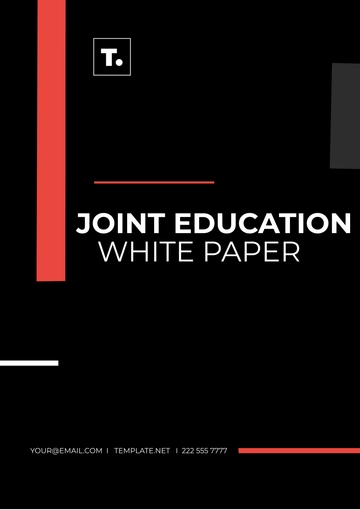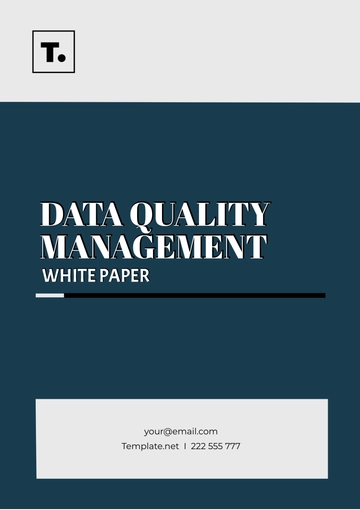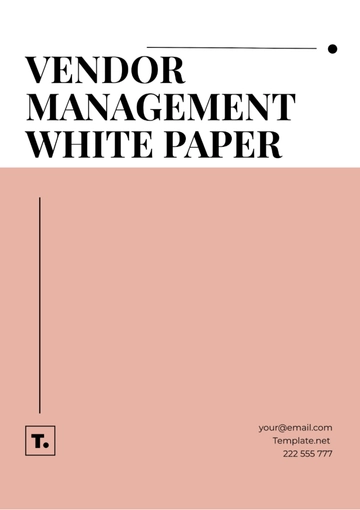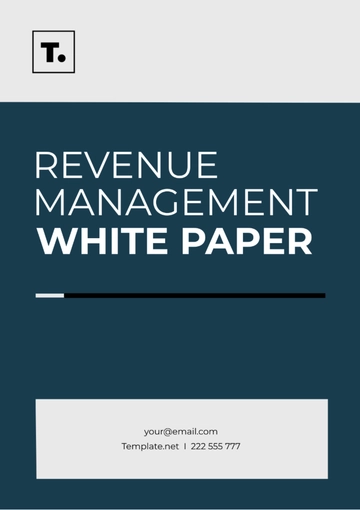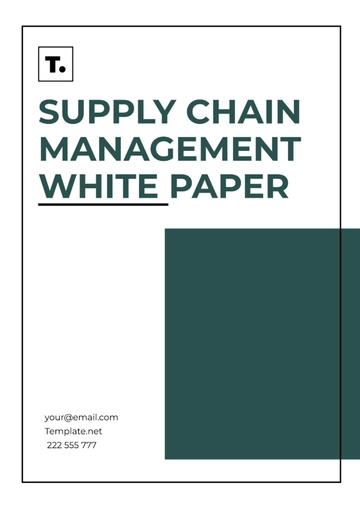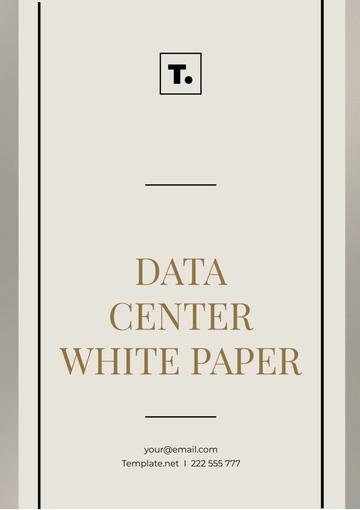Free Federal Trade Commission White Paper
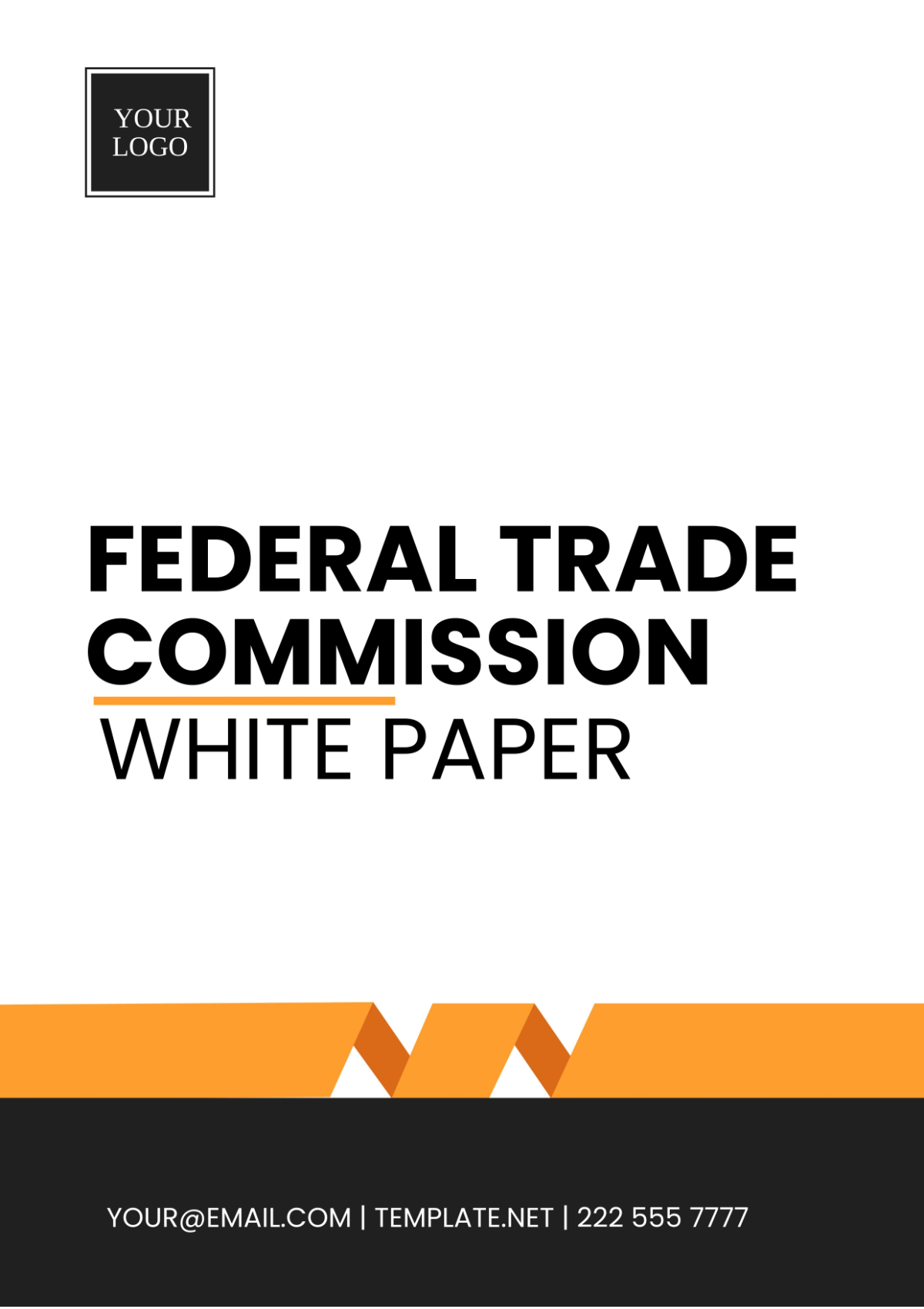
Prepared by: [Your Name]
Company: [Your Company Name]
Department: [Your Department]
Date: [Date]
I. Executive Summary

This white paper provides an in-depth analysis of the new Federal Trade Commission (FTC) regulations and their impact on [Your Industry]. It aims to guide [Your Company Name] in navigating compliance complexities and leveraging regulatory changes for strategic advantage.
Purpose: Identifying the objectives and scope of the white paper regarding FTC-related issues.
Key Findings: Highlighting significant findings and observations regarding FTC regulations and enforcement.
Recommendations: Offering practical suggestions and strategies for improving FTC policies and practices.
II. Introduction
This section provides an overview of the Federal Trade Commission, its history, mission, and regulatory authority.
Background: Exploring the origins and evolution of the FTC and its mandate to promote competition and protect consumers.
Scope: Defining the focus areas and objectives of the white paper.
Purpose: Clarifying the intention to assess the FTC's performance and propose improvements.
III. FTC Regulations and Enforcement
Providing an in-depth analysis of FTC regulations, enforcement actions, and notable cases.
Regulatory Framework | Description |
|---|---|
Federal Trade Commission Act | Enabling legislation for FTC's authority and responsibilities |
Sherman Antitrust Act | Addressing anticompetitive conduct and monopolistic practices |
Clayton Antitrust Act | Regulating mergers and acquisitions to prevent antitrust violations |
IV. Consumer Protection Initiatives
Highlighting FTC initiatives and programs aimed at safeguarding consumers from fraud, deception, and unfair business practices.
Initiatives | Description |
|---|---|
Consumer Education | Providing resources and guidance for informed consumer decisions |
Privacy and Data Security | Addressing online privacy concerns and data protection issues |
Advertising Regulation | Monitoring and enforcing regulations on deceptive advertising |
V. Regulatory Challenges and Future Outlook
Identifying regulatory challenges faced by the FTC and discussing future trends and developments in consumer protection and competition policy.
Challenges | Description |
|---|---|
Emerging Technologies | Addressing challenges posed by new technologies in regulating trade practices |
Globalization | Considering the impact of global markets on FTC enforcement efforts |
Legislative Reform | Advocating for legislative reforms to strengthen FTC's regulatory authority |
VI. Conclusion
Summarizing the key insights and recommendations presented in the white paper, emphasizing the importance of effective FTC regulation and enforcement in promoting competition and protecting consumers.
VII. References
American Bar Association. (2019). FTC's role in the digital age: Hearing before the Subcommittee on Consumer Protection and Commerce of the Committee on Energy and Commerce, House of Representatives, One Hundred Sixteenth Congress, first session, October 29, 2019. U.S. Government Publishing Office.
Federal Trade Commission. (n.d.). About the Federal Trade Commission.
Federal Trade Commission. (2020). FTC releases FY 2020 National Do Not Call Registry Data Book.
Miller, W. I. (2017). The Federal Trade Commission and antitrust law: Supplement to Antitrust laws and trade regulation (2nd ed.). West Group.
United States Congress House Committee on Energy and Commerce. (2019). Oversight of the Federal Trade Commission: Hearing before the Committee on Energy and Commerce, House of Representatives, One Hundred Sixteenth Congress, first session, May 8, 2019. U.S. Government Publishing Office.
VIII. Appendix
Including additional resources, case studies, or legal documents to support the analysis and findings presented in the white paper.
- 100% Customizable, free editor
- Access 1 Million+ Templates, photo’s & graphics
- Download or share as a template
- Click and replace photos, graphics, text, backgrounds
- Resize, crop, AI write & more
- Access advanced editor
Navigate regulatory landscapes with confidence using Template.net's Federal Trade Commission White Paper Template. This editable and customizable resource equips businesses to comply with FTC guidelines seamlessly. Seamlessly edit in our AI Tool, ensuring your policies and practices align with regulatory standards. Safeguard consumer interests and foster trust with professionalism and clarity.
